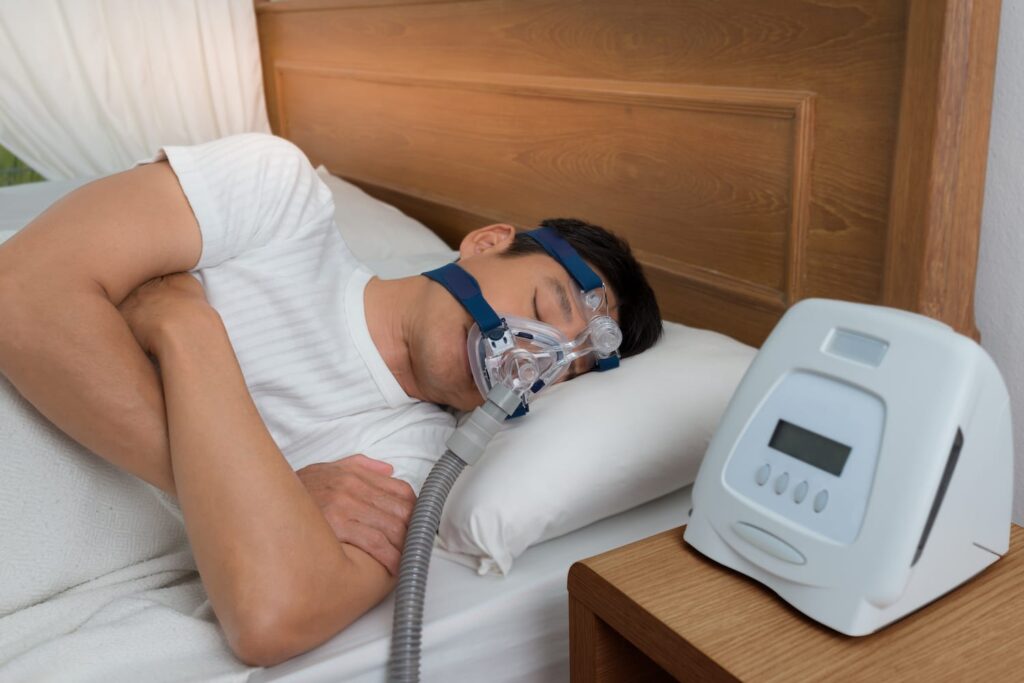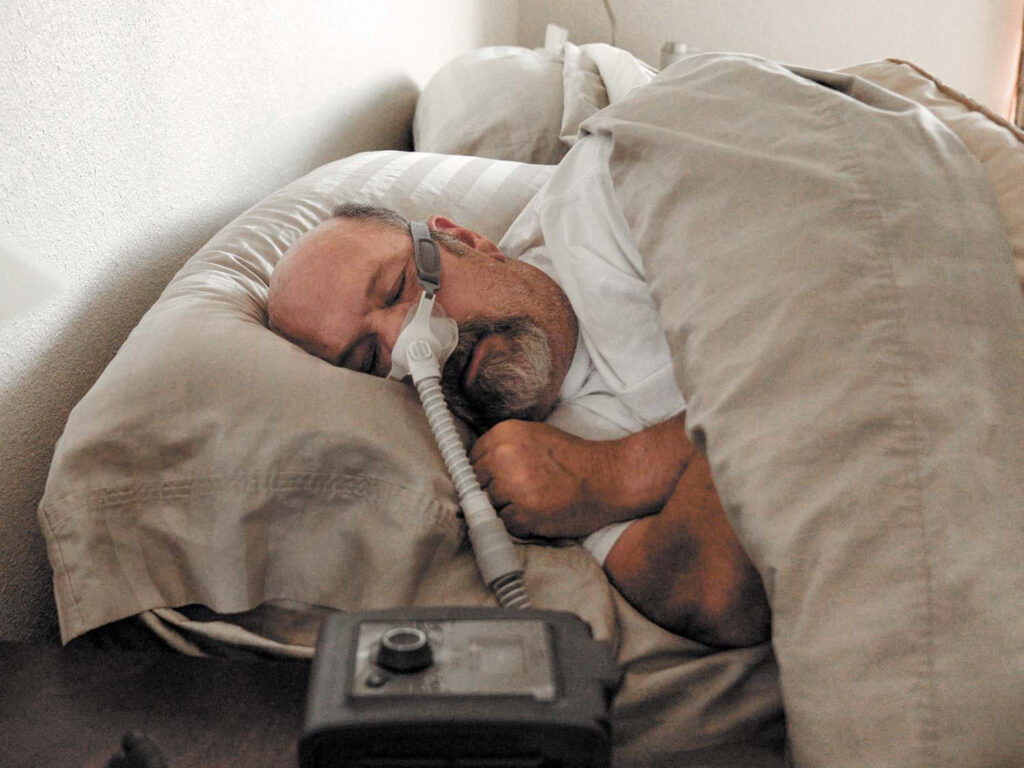Selecting the right CPAP machine is a critical decision for individuals managing sleep apnea. The effectiveness of sleep apnea treatment depends significantly on using appropriate equipment tailored to specific needs and preferences.
The digital marketplace has transformed the way patients access medical equipment. Purchasing a CPAP machine online offers distinct advantages:
- Competitive Pricing: Online retailers often provide better deals and regular promotional offers
- Extensive Selection: Access to a wide range of brands, models, and features
- Convenient Shopping: Browse and compare options from home at any time
- Detailed Information: Easy access to product specifications, user reviews, and comparison tools
When choosing a CPAP machine online, several key factors require careful consideration:
User reviews are valuable resources when buying CPAP machine online. These firsthand experiences provide critical insights into:
- Pressure settings and adjustment capabilities
- Mask compatibility and comfort features
- Size and portability requirements
- Noise levels during operation
- Additional features such as humidification
- Warranty and after-sales support
The right CPAP machine can significantly improve sleep quality and health outcomes. Through trusted online suppliers like Air Liquide Healthcare, patients can access high-quality CPAP equipment backed by professional support and expertise. In addition to CPAP machines, they also offer home oxygen machines which can further assist in improving overall health. This guide aims to help navigate the essential considerations for making an informed online CPAP machine purchase.

Understanding Different Types of CPAP Machines
The market offers three primary types of CPAP machines, each designed to meet specific therapeutic needs and preferences. You can find a wide selection of these CPAP machines online at Air Liquide Healthcare, including top brands like ResMed, BMC, and Fisher & Paykel.
1. Standard CPAP Machines
Standard CPAP devices deliver continuous air pressure at a fixed setting prescribed by a healthcare provider. These machines maintain the same pressure level throughout the night, making them suitable for patients who require consistent therapy. The prescribed pressure prevents airways from collapsing during sleep, enabling proper breathing patterns.
2. Auto-Adjusting Positive Airway Pressure (APAP) Machines
APAP machines incorporate advanced technology to monitor breathing patterns and automatically adjust pressure levels. These devices analyse each breath and modify pressure settings within a prescribed range. The automatic adjustments accommodate changes in sleeping positions, different sleep stages, and varying therapeutic needs throughout the night. This dynamic response can enhance comfort and treatment effectiveness. Find more about pressure on https://www.chess.cornell.edu/HPBio-workshop-april-2022
3. BiPAP (Bi-level Positive Airway Pressure) Machines
BiPAP devices offer two distinct pressure settings:
- Higher pressure during inhalation
- Lower pressure during exhalation
This dual-pressure system proves beneficial for patients who:
- Find it difficult to exhale against continuous pressure
- Have central sleep apnea
- Require respiratory support for conditions like COPD
- Need higher pressure settings for effective therapy
The specialised features of BiPAP machines can improve comfort and compliance for patients with specific respiratory needs. For those interested in monitoring their respiratory pressure more closely, an Aerobika device with an integrated manometer could be a valuable addition to their treatment plan.

Exploring Mask Options for Optimal Comfort and Effectiveness
Selecting the right CPAP mask, such as those available at Air Liquide Healthcare, plays a vital role in successful sleep apnea treatment. Each mask type offers distinct advantages suited to different sleeping habits and comfort preferences.
Nasal Masks
These triangular-shaped masks create a secure seal around the nose, from the bridge to the upper lip area. Nasal masks deliver consistent airflow directly to the nasal passages and work exceptionally well for patients who:
Read about aerobika on: Aerobika with Manometer Benefits and How It Works for Lung Health
- Require higher pressure settings
- Move frequently during sleep
- Prefer a natural breathing experience
Nasal Pillows
This minimalist design features small, soft silicone cushions that insert directly into the nostrils. Nasal pillows are ideal for patients who:
- Experience claustrophobia with traditional masks
- Have facial hair that interferes with mask sealing
- Wear glasses or read before bed
- Need a clear field of vision
Full-Face Masks
These masks cover both the nose and mouth, creating a seal around the perimeter of both areas. Full-face masks are particularly beneficial for:
- Mouth breathers
- Patients with nasal obstruction
- Those who sleep on their back
- Individuals requiring high-pressure settings
Each mask type comes in various sizes and materials to accommodate different facial structures and personal preferences. Professional mask fitting ensures optimal seal and comfort, maximising the effectiveness of CPAP therapy. Click here to find more about comfort.
Key Features to Look For in a CPAP Machine
Selecting a CPAP machine with the right features enhances therapeutic effectiveness and user comfort. Three essential features deserve careful consideration:
1. Built-in Humidification
A heated humidifier adds moisture to the pressurised air, preventing common side effects such as:
- Dry mouth and throat
- Nasal congestion
- Sinus irritation
- Nosebleeds
2. Pressure Adjustment Settings
Ramp technology allows users to start therapy at a lower pressure setting and gradually increases to the prescribed level. This feature:
- Makes falling asleep easier
- Reduces initial discomfort
- Typically adjusts over 5-45 minutes
- Offers customisable duration options
3. Noise Level Performance
Modern CPAP machines operate at different sound levels, measured in decibels (dB):
- Premium models: 24-26 dB
- Standard models: 28-30 dB
- Basic models: 30+ dB
A quieter machine creates minimal disruption for both the user and sleeping partners. The sound level should be considered alongside other bedroom ambient noise, such as air conditioning or fans.
Additional comfort features might include:
- LCD display with backlight
- Data tracking capabilities
- Automatic start/stop detection
- Integrated power backup systems
Finding the Right Fit: Sizing Considerations for Your CPAP Equipment
A properly fitted CPAP mask is essential for successful sleep apnea treatment. The right mask size creates an effective seal between the face and the device, preventing air leaks that can compromise therapy effectiveness and disturb sleep.
Key Sizing Considerations:
- Face measurements determine the appropriate mask size
- Facial structure variations affect mask compatibility
- Facial hair impacts seal effectiveness
- Sleep position influences mask stability
Mask sizing guides from manufacturers provide specific measurement points for different mask styles. These measurements include:
- Width of nose
- Length from bridge to base of nose
- Distance between nostrils
- Face width at cheekbones
- Jaw width
A proper fit directly influences treatment compliance. Ill-fitting masks lead to:
- Air leaks disrupting sleep
- Skin irritation
- Pressure points
- Mask displacement during movement
Professional mask fitting sessions allow patients to:
- Try different mask sizes
- Test various mask styles
- Receive expert guidance
- Address individual facial characteristics
Regular reassessment of mask fit helps maintain optimal therapy results, as changes in weight, facial structure, or aging can affect mask fit. Proper sizing maximises comfort, leading to consistent CPAP use and improved treatment outcomes.
In some cases, such as when a patient also requires supplemental oxygen therapy alongside their CPAP treatment, it’s essential to consider additional equipment like an oxygen concentrator for home use. The Philips Everflo™ Oxygen Concentrator is a quiet and energy-efficient option that can seamlessly integrate into a patient’s home healthcare routine.
Ensuring Reliability: The Importance of Choosing Reputable Suppliers When Buying a CPAP Machine Online
Purchasing CPAP equipment from reputable suppliers safeguards patients against counterfeit products and substandard service. Established suppliers, such as Air Liquide Healthcare, maintain strict quality control measures and offer genuine manufacturer warranties for their CPAP machines.
Key attributes of reputable CPAP suppliers include:
- Valid medical device licenses and certifications
- Direct relationships with recognised manufacturers
- Comprehensive product documentation
- Professional customer support teams
- Clear warranty policies
- Secure payment processing systems
Reliable suppliers provide essential post-purchase support, including:
- Technical assistance for device setup
- Troubleshooting guidance
- Regular maintenance recommendations
- Access to replacement parts
- Follow-up care services
Expert suppliers also stock a complete range of compatible accessories and replacement components, ensuring patients can maintain their CPAP therapy without interruption. This level of service helps create a seamless treatment experience and supports optimal therapeutic outcomes for sleep apnea patients.
Considering Insurance Coverage and Cost Implications When Purchasing a CPAP Machine Online
Insurance coverage plays a significant role in the decision to purchase a CPAP machine online. Private health insurance providers often include CPAP equipment under their medical device coverage, which can substantially reduce out-of-pocket expenses.
Key considerations for insurance coverage:
- Pre-approval requirements: Many insurers require pre-approval before purchasing CPAP equipment
- Coverage limits: Insurance policies may have specific coverage caps or reimbursement rates
- Preferred suppliers: Some insurance providers work with specific CPAP suppliers, offering better rates
- Documentation needs: Medical prescriptions and sleep study results are typically required for claims
The cost of CPAP machines varies significantly based on features and specifications. Basic models start from £500, while advanced units with auto-adjusting capabilities can exceed £2,000. Additional expenses to factor include:
- Replacement masks (every 3-6 months)
- Filters (monthly to quarterly)
- Tubing (every 3 months)
- Humidifier chambers (every 6-12 months)
Checking insurance coverage before making an online purchase helps create a realistic budget and ensures compliance with insurance requirements for reimbursement.
Researching User Reviews, Price Comparison, and Additional Accessories
- Long-term reliability
- Noise levels during operation
- Ease of maintenance
- Battery life for portable models
- Customer service quality
A comprehensive price comparison across multiple authorised retailers helps identify competitive pricing while ensuring product authenticity. Essential accessories to consider include:
- Replacement filters
- Cleaning supplies
- Travel cases
- Backup power options
- Additional tubing
Tip: Create a spreadsheet to track different models, their features, prices, and user ratings. This systematic approach helps identify the best value proposition that aligns with specific needs and budget constraints.
Air Liquide Healthcare’s extensive network of 152 diagnostic and therapy service locations across Australia provides access to expert guidance and support in selecting appropriate CPAP machines and accessories, ensuring optimal therapeutic outcomes for sleep apnoea patients.